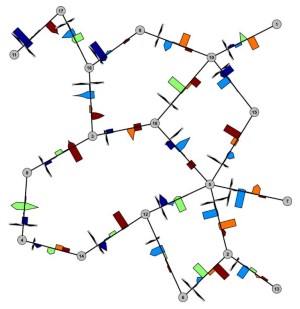
Learning the Mental Map of a Fuzzy Decision-Maker
2015 MU Computer Science and Information Technology Showcase

Abstract
We can represent many real-world tasks such as navigation through an unknown environment as sequential decision processes through some state space. Decision-makers in these domains are faced with the problem of acting on incomplete information in order to maximize some reward or minimize the total cost. We model this problem using fuzzy weighted graphs and the principle of bounded rationality to infer how a decision-making agent might form a "mental map" of the environment and develop a policy. By observing the actions of the agent, we can gain insight into the agent's beliefs and desires, allowing us to understand what the agent's mental map looks like. We draw upon recent work in the field of inverse reinforcement learning and show several examples demonstrating these ideas, including some novel visualizations and preliminary experimental results for this ongoing work.
Demos
Maze Generation Algorithms
These are reimplementations of the fantastic maze generation algorithms demonstrated by Mike Bostock.
Lab Rat Scenarios
These interactive examples place a user-controllable mouse in a maze as a way to study decision-making under uncertainty. The user can plan a path for the mouse and explore the environment in search of a reward.
Media
Related Work
